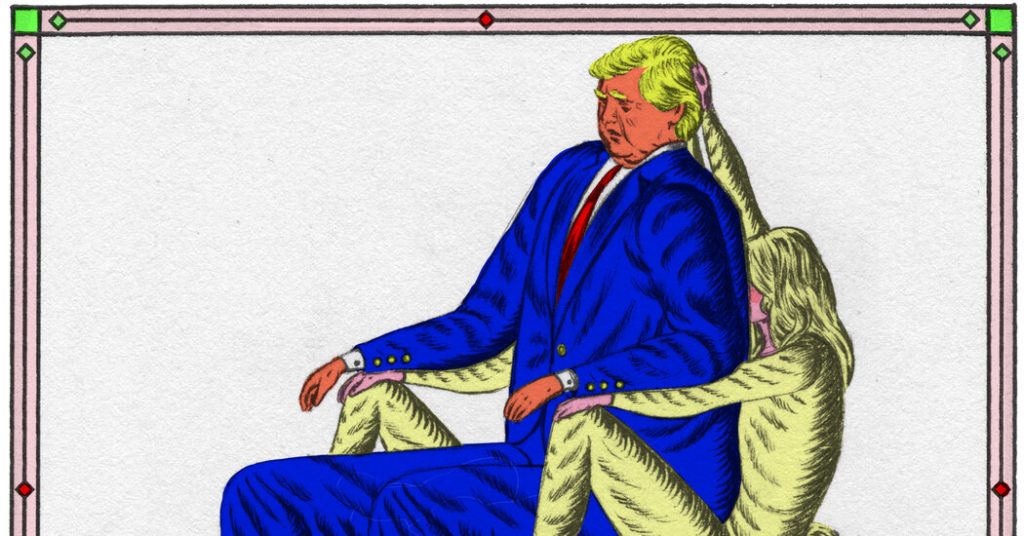The potential for conflict between executive overreach and constitutional principles under a Trump administration poses a significant challenge to the integrity of American governance. The central question revolves around the loyalty of appointed officials: will they prioritize fealty to the president or adherence to the rule of law? This dilemma extends from cabinet secretaries to career civil servants, and its resolution will determine the extent to which American institutions can withstand the pressure of potentially unlawful directives. The recent House vote against a Trump-backed resolution offers a glimmer of hope, suggesting that some members of Congress are willing to exercise independent judgment. However, the true test lies in the actions of those within the executive branch who face direct pressure from the president.
The Department of Defense presents a particularly stark example of this potential conflict. If President Trump were to issue an illegal order, such as deploying troops domestically in violation of the Posse Comitatus Act, the Secretary of Defense and military officers would be faced with a critical choice: obey an unlawful command or uphold their constitutional oaths. This scenario highlights the importance of selecting individuals with unwavering commitment to the rule of law for key positions. The response of military leaders, potentially advised by legal counsel, would be a pivotal moment, demonstrating whether the chain of command prioritizes legality or blind obedience. The potential for chaos and lasting damage to civil-military relations is substantial.
Similar concerns arise within the intelligence community, which Trump has often viewed with suspicion. However, the most vulnerable agencies are those tasked with law enforcement, particularly the Department of Justice. Hypothetically, if President Trump were to order the Attorney General to prosecute political opponents based on flimsy pretexts, the integrity of the entire justice system would be at stake. The Attorney General, Deputy Attorney General, and career prosecutors would face immense pressure to comply, potentially jeopardizing their ethical obligations and professional reputations. The question of whether they would prioritize their loyalty to the Constitution or succumb to political pressure is paramount.
This potential for politicized prosecutions extends down the chain of command, from the Attorney General to U.S. Attorneys and ultimately to career trial attorneys. The FBI and other investigative agencies face similar dilemmas. Each individual within these organizations will be forced to make a choice between following potentially illegal orders and upholding their professional ethics. The cumulative effect of these individual decisions will determine the fate of the justice system and the rule of law. A pervasive culture of compliance with unlawful directives could lead to a Justice Department in perpetual crisis, eroding public trust and undermining the integrity of law enforcement.
Despite the potential for executive overreach, the federal judiciary, particularly the Supreme Court and district courts, serves as a crucial check on presidential power. The judiciary’s independence, reinforced by life tenure, provides a bulwark against politically motivated prosecutions and other abuses of power. The experience of district court judges in handling January 6th defendants offers a compelling example of judicial independence in action. These judges, appointed by both Republican and Democratic presidents, have demonstrated a commitment to upholding the law, even in the face of political pressure. Their sentencing decisions, often reflecting a firm stance against unlawful behavior, illustrate the judiciary’s role in safeguarding the rule of law.
The potential for conflict between a Trump administration and the principles of constitutional governance is undeniable. The ultimate outcome will depend on the choices made by individuals within the executive branch, particularly those in positions of authority. Will they prioritize personal loyalty or adherence to the Constitution? The answers to these questions will determine the fate of American institutions and the future of the rule of law. The judiciary, with its independence and commitment to legal principles, offers a critical safeguard against executive overreach. However, the true test lies in the actions of those within the executive branch who face the direct pressure of potentially unlawful presidential directives. Their choices will shape the course of American governance and determine the extent to which the nation adheres to its founding principles.


